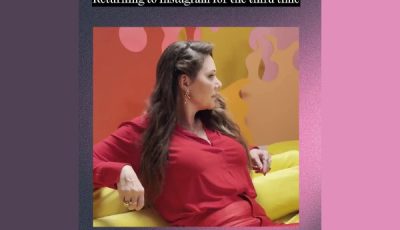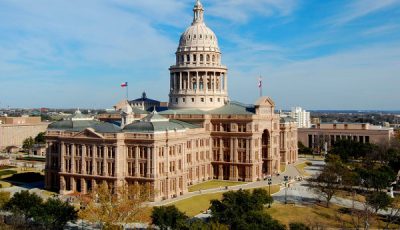Welcome to Texas – No LGBTQ Books, Please
 AUSTIN, Texas — The war on porn has many theaters and battles. It is a constant fight for freedom of expression and the survival of an industry that positively impacts society in so many ways. Texas is home to a series of flashpoints in the war on porn that leave scores of adult industry professionals and free speech advocates wondering: why is this state such a lightning rod of manufactured fear?
AUSTIN, Texas — The war on porn has many theaters and battles. It is a constant fight for freedom of expression and the survival of an industry that positively impacts society in so many ways. Texas is home to a series of flashpoints in the war on porn that leave scores of adult industry professionals and free speech advocates wondering: why is this state such a lightning rod of manufactured fear?
The Lone Star state is my birthplace. It pains me to see it burn under the rule of far-right politicians who continue to violate the sacrosanct right to free expression for all. Having entered the adult industry just a few years ago, my work in this space has come with alienation from family and friends. It’s painful, but I love what I do. But, the most pain I still feel is that a state that bore me from a tradition of independence and freedom is doing so much to limit constitutionally-protected forms of free speech across the state. Now, the right to read or the right to express oneself is being degraded.
Personal complaints aside, Texas is following down a path of soft-fascism when it comes to the regulation of particular messages the politicos in power believe are detrimental to freedom. One such act is the banning of books. Data from PEN America, a literary freedom advocacy organization based in Washington, D.C., shows that the educational system in Texas has banned more books than any other state, citing instances of school administrators bowing to political pressure from elected officials and threats from groups involved in the movement to ban certain types of books.
According to PEN America’s data, there are 801 bans of literature across 22 school districts in Texas. Based on national trends tracked by the organization’s own index, 41 percent of the bans include LGBTQ protagonists or subject matter; 40 percent involve protagonists of color or subject matter dealing with race; 22 percent of banned titles include sexual content and sexual wellness materials; 21 percent include titles that deal with racism and its context in U.S. history; and smaller percentages of bans for titles dealing with religious minority groups, rights, and activism.
How does this apply to the adult industry? The book bans in Texas are heavily focused on material that deals with LGBTQ themes, sexual wellness, and comprehensive sexual education. Texas Tribune notes that lawmakers, like state Rep. Matt Krause, R-Fort Worth, view certain books as somehow “obscene” and “pornographic.” Rep. Krause made headlines in October of 2021 for circulating a spreadsheet of 850 titles to school administrators and the Texas Education Agency. Titles from Krause’s list include books discussing teen legal rights, human rights topics and LGBTQ topics. Books Krause and his ilk view as pornographic and obscene including the award-winning young adult graphic novel Gender Queer: A Memoir by illustrator Maia Kobabe.
Gender Queer: A Memoir is a young adult coming-of-age story. But, due to a few panels depicting a sexual sequence that is representative of a teenager’s hormone-riddled imagination, the book is somehow “porn”. Other titles that deal with this sort of material are lumped together with pornographic content that actually is regulated and produced for adults by adults. This is relevant to the adult entertainment industry because far-right politicians are weaponizing fictional books and peer-reviewed academic works by equating them with adult industry products.
Krause, for instance, holds that anything dealing with sexual freedom is a “pornographic” work. Even if the work has nothing to do with pornography or adult content creation, the label he places on the material leads his constituents and his fellow ideologues to buy into the moral panic he initiated. Think about what happened in Virginia Beach, Virginia, for reference. A state lawmaker and a failed congressional candidate sued Barnes & Noble Booksellers, and other independent bookstores, and engineered a moral panic surrounding literature like Kobabe’s graphic novel.
The plaintiffs tried to use a broadly worded and ancillary state obscenity law to ban the sale of Kobabe’s work and others in the vicinity of Virginia Beach. In the end, the circuit court judge ruled that there’s nothing in Virginia statutes that would indicate that this sort of literature qualifies as obscene and therefore subject to the restrictions sought by the plaintiffs.
Conflating distinct issues to push political ideologies and agendas is a direct threat to forms of speech that are otherwise protected by the First Amendment — and the preferred attack strategy of the modern American anti-porn movement, if recent events are any indication.













